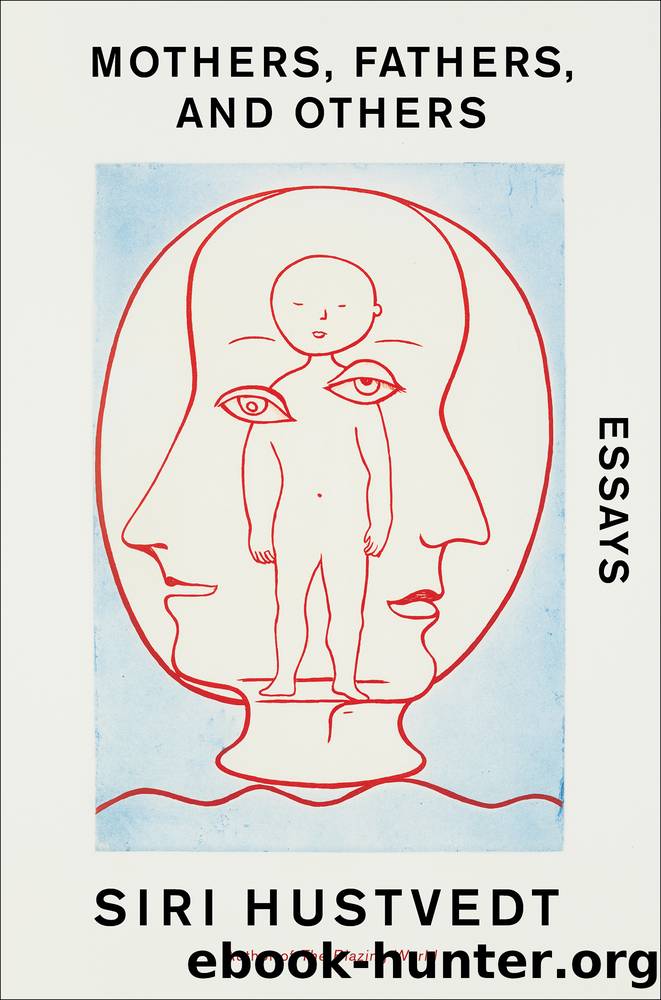Mothers, Fathers, and Others by Siri Hustvedt

Author:Siri Hustvedt
Language: eng
Format: epub
Publisher: Simon & Schuster
Published: 2021-12-07T00:00:00+00:00
THE ENIGMA OF READING
âWuthering Heights is a strange inartistic story,â an anonymous English reviewer wrote in Atlas in January 1848. âThis is a strange book,â commented another in the Examiner. âHis work is strangely original,â said a reviewer in Britannia. âWuthering Heights is a strange sort of bookâbaffling all regular criticism,â wrote a fourth in Douglas Jerrodâs Weekly Newspaper. He continued, âyet, it is impossible to begin and not finish it; and quite impossible to lay it aside afterwards and say nothing about it.â Strangeness was not a quality that led reviewers to recommend the novel Emily Brontë published in 1847 under the pseudonym Ellis Bell. At best, they treated the book as a flawed work by a gifted writer who might make something of himself after he acquired more polish.
A good number of the American reviewers responded to the book less charitably. They were morally outraged. âWe rise from the perusal of Wuthering Heights as if we had come fresh from a pest-houseâ was the verdict from Patersonâs Magazine. âIt is a compound of vulgar depravity and unnatural horrors,â wrote the reviewer in Grahamâs Ladyâs and Gentlemanâs Magazine. Edwin P. Whipple concluded his review of Bellâs novel in the North American Review with this sentence: âNightmares and dreams, through which devils dance and wolves howl, make bad novels.â
It is common practice to look back at excoriating reviews of âclassicâ books and smirk with superiority. In large measure, this smug attitude is the result of having been handed a piece of cultural wisdom by the invisible makers of the literary canon, whose selections have found their way onto reading lists for high school and college English classes. The 1925 headline of the review in the New York World of The Great Gatsby, FITZGERALDâS LATEST A DUD, is now infamous for its obtuseness. And yet, the very idea of a literary canon has been under fire for at least half a century. Whatever consensus there may have been in decades past about greatness has been replaced by warring political opinions. There is good reason to protest against the received wisdom of the canon makers who were blind to the work of writers who fell outside the strictures of their âtaste,â many women and most non-whites, although exceptions were made for an anointed few.
Moral outrage of one kind or another remains a common American response to literature. The portrait of Wolfsheim in Gatsby, for example, has long been condemned as anti-Semitic, a fact that might prevent its inclusion on a course list in 2020. Then again, the scholar Michael Pekarofski argues in the F. Scott Fitzgerald Review that Jay Gatsby himself is âa passing Jewââan original thought. Cleansing literature of the taints of misogyny, racism, and xenophobia, not to speak of countless other ugly offenses against greater humankind, would quickly shrink our libraries to an alarming size of a few volumes blessed by those who have taken upon themselves the arduous task of literary purification. And yet, even profligate and sophisticated readers
Download
This site does not store any files on its server. We only index and link to content provided by other sites. Please contact the content providers to delete copyright contents if any and email us, we'll remove relevant links or contents immediately.
Kathy Andrews Collection by Kathy Andrews(10506)
The remains of the day by Kazuo Ishiguro(7541)
Spare by Prince Harry The Duke of Sussex(4188)
Paper Towns by Green John(4163)
The Body: A Guide for Occupants by Bill Bryson(3789)
Be in a Treehouse by Pete Nelson(3206)
Harry Potter and the Goblet Of Fire by J.K. Rowling(3024)
Goodbye Paradise(2949)
Never by Ken Follett(2871)
Into Thin Air by Jon Krakauer(2695)
The Remains of the Day by Kazuo Ishiguro(2614)
The Genius of Japanese Carpentry by Azby Brown(2602)
The Cellar by Natasha Preston(2592)
Drawing Shortcuts: Developing Quick Drawing Skills Using Today's Technology by Leggitt Jim(2527)
120 Days of Sodom by Marquis de Sade(2428)
Architecture 101 by Nicole Bridge(2348)
The Man Who Died Twice by Richard Osman(2289)
Machine Learning at Scale with H2O by Gregory Keys | David Whiting(2263)
Fairy Tale by Stephen King(2058)
